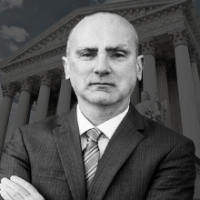Grapevine Felony Lawyer, Texas
Sponsored Law Firm
-
 x
x

Click For More Info:
-
The Todd Rash Law Group
2363 Hwy. 287 N. Suite 205 Mansfield, TX 76063» view mapCriminal Defense Law Experienced Aggressive Injury Lawyers
When you need an experienced aggressive Criminal Defense attorney that delivers results. Todd Rash's record speaks for itself.
800-698-5790
Michael Lai Howard
✓ VERIFIED *Status is reviewed annually. For latest information visit hereThe fact that one mistake, one bad day, or even a police officer’s mistake could completely ruin or change the trajectory of your entire life made m... (more)
Darlina Crowder
Attorney Darlina C. Crowder provides criminal defense representation for clients in the Plano, Texas area. She has been practicing law in the U.S. Dis... (more)
James L Guinan
✓ VERIFIED *Status is reviewed annually. For latest information visit hereJames Guinan began practice in November 1989 and practices as a Criminal Defense and Family lawyer in Dallas, Collin, Denton and Tarrant Counties.
Robert Keating
✓ VERIFIED *Status is reviewed annually. For latest information visit hereAttorney Rob Keating has successfully represented individuals charged with crimes ranging from serious felony offenses to minor municipal citations in... (more)
Christopher Lankford
✓ VERIFIED *Status is reviewed annually. For latest information visit hereChristopher Lankford is licensed to practice law in all Texas state courts, Federal court (Northern District of Texas), and the Supreme Court of the U... (more)
Craig Allen Dameron
With over 15 years of experience representing clients charged with DWI and other criminal charges in Tarrant County and throughout the Dallas-Fort Wor... (more)
Doug Weathers
Toby Shook
FREE CONSULTATION
CONTACTWm. Reagan Wynn
Gerald J Smith
FREE CONSULTATION
CONTACT Todd Rash Mansfield, TX
Todd Rash Mansfield, TX Practice AreasExpertise
Practice AreasExpertise





